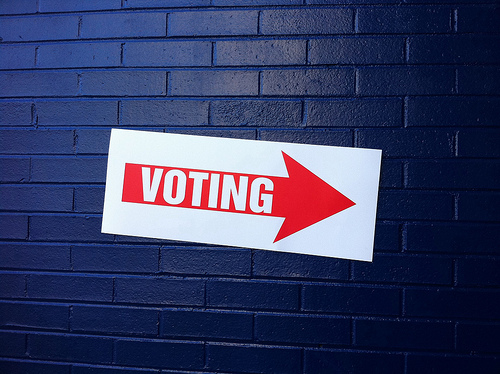Content note: depression, the 2016 election
It seems like too much.
I haven’t said anything here for a while. In the weeks before the election, I was mostly doing election work. In the weeks after the election, I’ve been in a deep depression, struggling to find my way in the new world, struggling to even want to find my way, struggling just to put one foot in front of the other every day. (Don’t worry, I’m hanging in there, I’ll be okay. But this one’s been rough.)
I keep wanting to write about smaller things, but I don’t want my first post after the election of a hard-right, racist, misogynist, xenophobic, bullying fascist to be, “Hey, we’re having a meetup!” I keep wanting to write about the election, but the topic seems too big. Where the hell do I even start? It seems too big to write about, to think about, to do anything about.
But I know that’s not true.
It’s so hard to strike the right balance. It’s so hard to realistically face and accept the ugly reality of the rise of fascism in the United States — while maintaining the will to resist. It’s such a small window. Not enough attention to the realities of fascism, and it’s denial, minimizing, gaslighting. Too much attention to the realities of fascism, and here comes despair. It’s such a small window. And it’s a different window for everyone. Hell, for me it’s a different window from day to day, hour to hour, minute to minute. But for me, the lifeline I’m hanging onto is this:
Resistance is not futile.
The best-case scenario is unbelievably shitty, a rollback of support systems and civil rights that took decades to build, an upsurge in open bigotry and hate crimes, more people than ever dying of poverty, police brutality, hateful violence. The worse scenario is the rise of literal fascism. This isn’t hyperbole: historians of Nazi Germany are saying “Yes, this is what the rise of Nazi Germany looked like.” But resistance is not futile. Resistance can be effective. Resistance can reduce harm. Resistance can even win, if the concept of “winning” makes any sense in a permanent struggle.
I don’t know what exactly resistance will look like. I know it will look different for different people. I know I need to study more about resistance movements of the past — and I also know the resistance against this regime is going to be different from anything that came before it. (If for no other reason, they didn’t have Facebook in the Spanish Civil War.) Every resistance movement has been different, and we are going to have to invent some new wheels.
I don’t yet know what that looks like. But I know that one of the ways fascism rises is by endless repetition of the twin lies: “It’s really not that bad,” and, “It’s too powerful, you can’t fight it.” Neither of these is true. It really is going to be that bad — for Muslims and ex-Muslims, for immigrants and brown people who are assumed to be immigrants, for women, for queers, for trans people, for black and brown people, for disabled people, for poor people. At some point, it’s going to be that bad for pretty much everyone but the handful of people at the very top. But we can fight it. Struggle is powerful. Collective action is powerful. Resistance is powerful. And it is not futile.
(Note: I’m currently not allowing comments on my blog. Moderating them was taking too much of my time and energy. If you want to discuss this post, please share and discuss in your own spaces. Thanks.)










